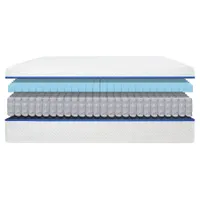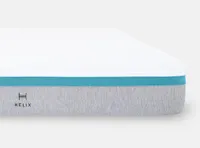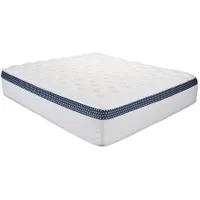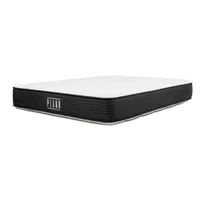Hard vs soft mattress: Which is best for general aches and pains?
Short answer: it all comes down to how you sleep at night and where you feel the most discomfort
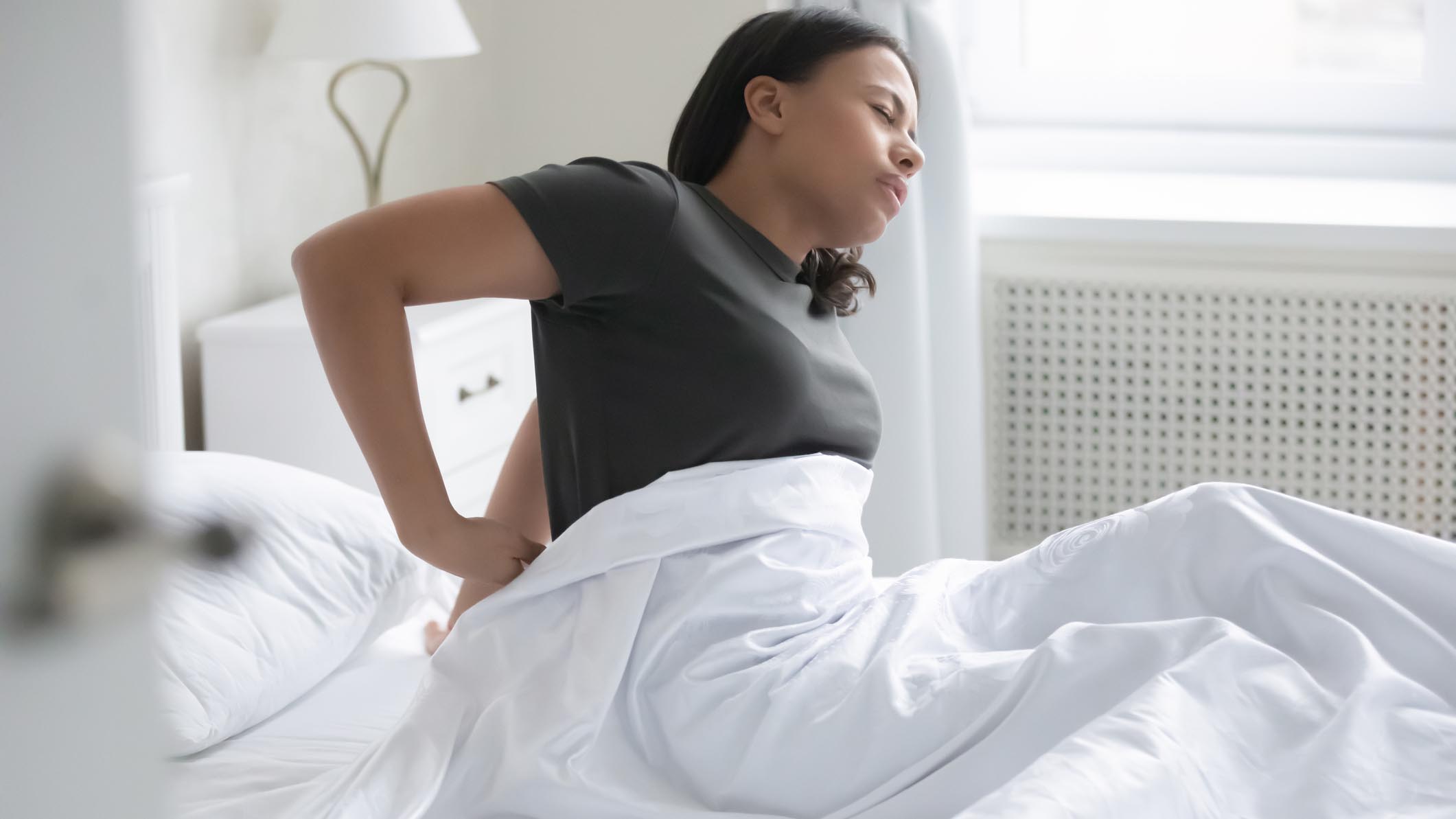
Here at Tom’s Guide our expert editors are committed to bringing you the best news, reviews and guides to help you stay informed and ahead of the curve!
You are now subscribed
Your newsletter sign-up was successful
Want to add more newsletters?

Daily (Mon-Sun)
Tom's Guide Daily
Sign up to get the latest updates on all of your favorite content! From cutting-edge tech news and the hottest streaming buzz to unbeatable deals on the best products and in-depth reviews, we’ve got you covered.

Weekly on Thursday
Tom's AI Guide
Be AI savvy with your weekly newsletter summing up all the biggest AI news you need to know. Plus, analysis from our AI editor and tips on how to use the latest AI tools!

Weekly on Friday
Tom's iGuide
Unlock the vast world of Apple news straight to your inbox. With coverage on everything from exciting product launches to essential software updates, this is your go-to source for the latest updates on all the best Apple content.

Weekly on Monday
Tom's Streaming Guide
Our weekly newsletter is expertly crafted to immerse you in the world of streaming. Stay updated on the latest releases and our top recommendations across your favorite streaming platforms.
Join the club
Get full access to premium articles, exclusive features and a growing list of member rewards.
Do you struggle to sleep at night due to aches and pains? Your mattress may be the incorrect firmness. When it comes to hard vs soft mattresses, the right type depends on a variety of factors, including where you experience the most discomfort in your body. Sleepers with back pain, for example, have slightly different needs than those with joint pain.
Fortunately, you'll no longer have to lose sleep over this as we've put together a guide to finding the very best mattress to help you sleep comfortably by soothing sore joints and creaky backs. Do keep in mind that we're offering general advice based on our own experiences and research. Speak to your doctor for personal advice and a proper diagnosis of your issues, and use this article as a springboard for further discussion.
What is a hard mattress?
A hard mattress is otherwise known as a firm mattress. With this mattress type, you won't sink into the surface but feel like you're floating on top of it. On the 10-point firmness scale, a hard mattress rates between 8 and 10.
Hard mattresses are usually made with innersprings and/or latex foam, although some models may include a layer of softer memory foam for pressure relief. The Plank Firm mattress is among the rare all-foam beds that fall into this category.
The pros of a hard mattress...
✅ It's (generally) longer-lasting: Since you won't sink deep into the surface here, you'll be able to get more mileage out of a hard mattress – which will save you money in the long-run. This is especially true if you have a latex-based bed since latex is an incredibly durable material. You'll still want to avoid making the most common mattress care mistakes, though.
✅ It's great for back and front sleeping: If you favor your back or stomach while sleeping, you'll want the support of a hard mattress to maintain the natural curve of your spine. Anything too soft and your mid-section will start to dip, creating tension in your lower back. Learn what happens when you sleep on your back or on your stomach.
Get instant access to breaking news, the hottest reviews, great deals and helpful tips.
✅ It's supportive enough for heavier bodies: For sleepers over 230lbs, a hard mattress should not only help distribute their body weight evenly, but it'll also be less prone to sagging. Our list of the best mattresses for heavy people runs the gamut from medium-firm to firm.
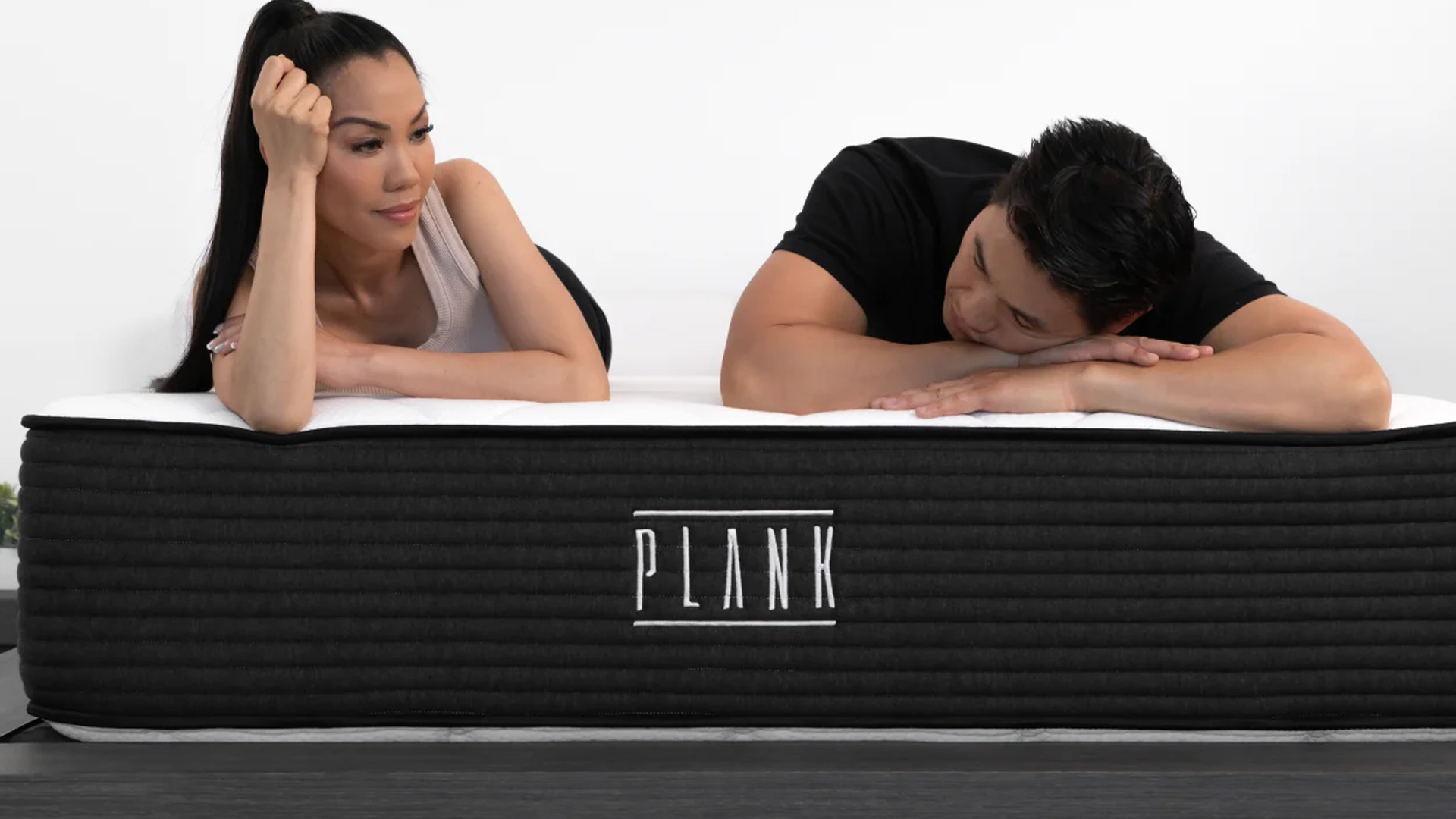
The cons of a hard mattress...
❌ It's not for strict side sleeping: If you sleep on your side, a hard mattress could be too unyielding as it won't provide enough sinkage around your shoulders and hips, causing pain. Browse our guide to the best mattresses for side sleepers, which range from soft to medium-firm.
❌ Combi sleepers may not like it either: For combination sleepers, a firm mattress may not provide the level of comfort they need, especially if they primarily drop onto their side. A medium-firm mattress is ideal for ease of movement and universal support.
❌ It could be too solid for underweight individuals: Firmness is subjective, but if you weigh under 130lbs, you might not enjoy the lack of sinkage that comes with a hard mattress – regardless of your preferred sleep style.
- Read more: The best firm mattress
What is a soft mattress?
Also known as a plush mattress, a soft mattress has a snug, sink-in sensation. On the 10-point firmness scale, a soft mattress rates below a 3, while a medium-soft mattress rates a 4. Soft mattresses feature softer foams in the top layers, with many plusher hybrids including stitched-on pillow-tops or Euro-tops for an extra-cozy feel.
The SleepOvation Mattress (now known as Kiwi Sleep) is one of the softest beds we've ever reviewed, though it falls closer to a medium feel (5.5) than plush. This hybrid has 3” high-density foam pockets for cushioning plus hundreds of individually-wrapped coils for support.
The pros of a soft mattress...
✅ It's excellent for side sleeping: Soft mattresses deliver the ample cushioning side sleepers need for their shoulders, hips, and knees. This helps prevent pressure build-up and morning aches.
✅ It's just right for smaller bodies: Underweight or petite sleepers who want to sink into their bed even the slightest bit will want to seek a softer bed, as anything too firm could make it seem like they're lying on a slab of stone. (Of course, this all comes down to personal preference.)
✅ It exudes hotel-quality comfort: Although hotel mattresses tend to be medium-firm to accommodate a broad range of guests, they often have plush pillow-tops that ooze luxury. Sleeping on a plush bed can make every day feel like a holiday.
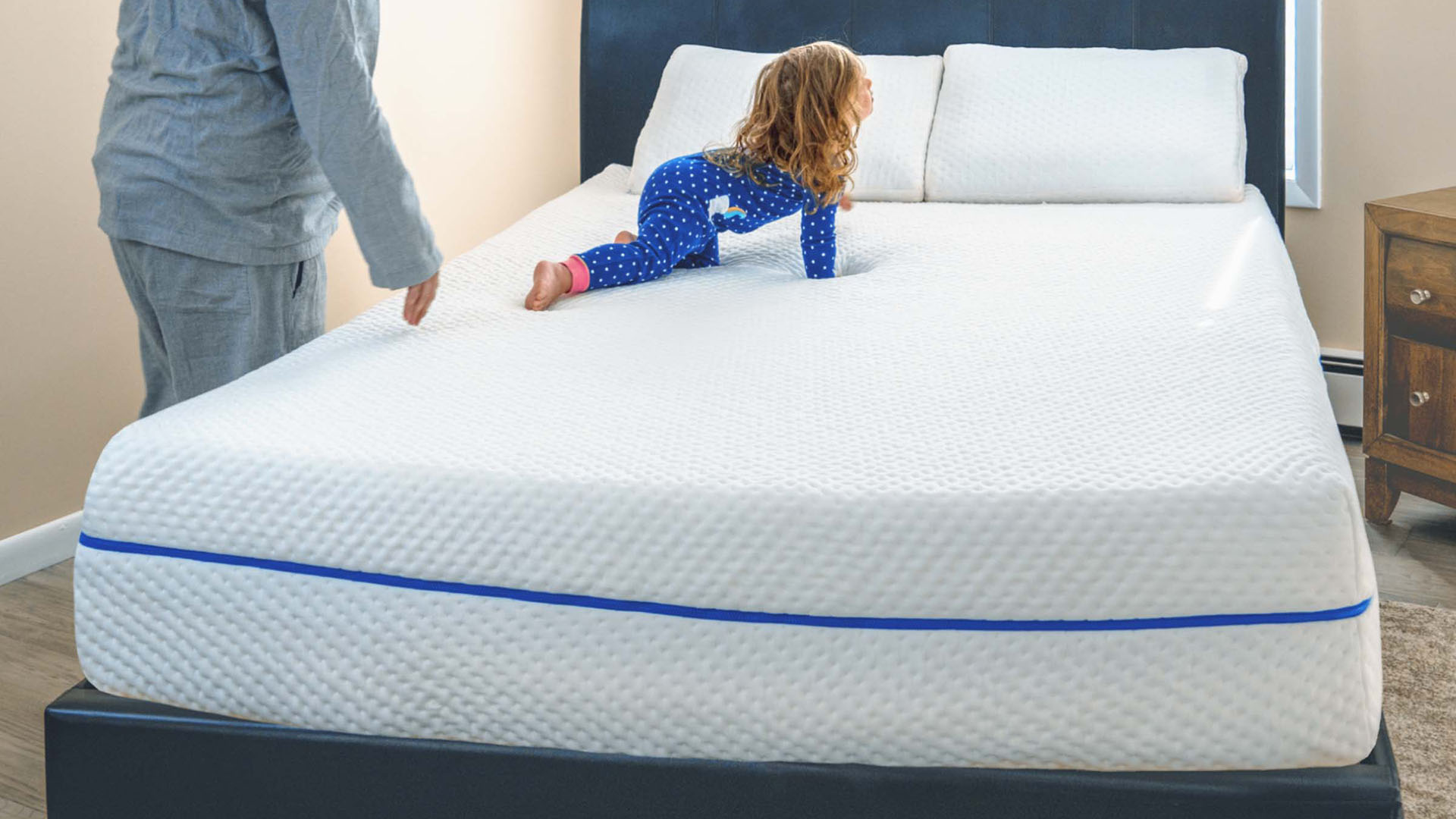
The cons of a soft mattress...
❌ It's not suited to front or back sleeping: A common issue among front and back sleepers who sleep on a plush bed is poor alignment due to their hips or pelvis sinking too low. If you like to sleep prone, take a look at our favorite mattresses for stomach sleepers.
❌ It'll further hinder sleepers with mobility issues: A super-soft mattress may sound like a dream but for sleepers who have a disability, injury, or other health problems it could be a flat-out nightmare. Firmer beds are better for changing positions and pushing off if you need assistance getting in or out of bed.
❌ Hot sleepers may not enjoy the sink: The deeper you fall into your sleep surface, the less your body is exposed to the air. If you're already a chronically hot sleeper, a soft mattress could exacerbate this problem. Look for a specialty cooling mattress instead.
Hard vs soft mattress: Which is best for aches and pains?
When it comes to choosing a hard or soft mattress to alleviate your aches and pains, the right type will depend on where you're experiencing the most discomfort – your back or your joints.
If you have lower back pain, consider a hard mattress. This will ensure optimal support for your lumbar, particularly if you suffer from sciatica or sacroiliitis. A hard mattress will also help minimize strain on your neck so consider a firmer bed if you carry a lot of tension in that area. (Don't underestimate the value of a good pillow, either.)
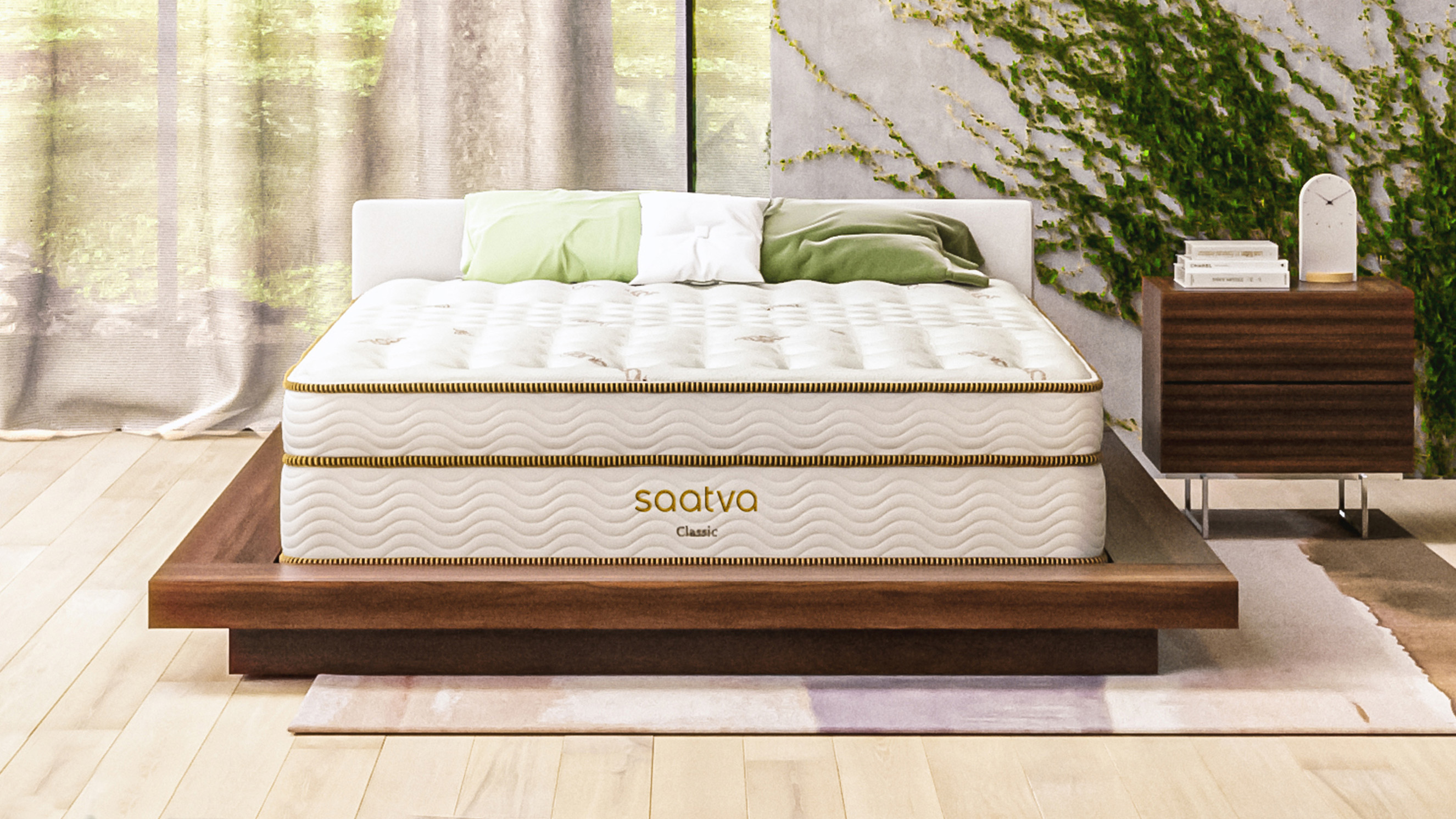
One of our favorite hard mattresses for back pain is the Saatva Classic. This luxury innerspring hybrid comes in three comfort levels, including Firm – which promises enough resistance without aggravating your back or joints. A chiropractor-approved lumbar crown in the center of the bed will keep your lower back well-supported. Read more in our Saatva Classic mattress review.
For achy joints, a soft mattress should provide more relief. It'll cushion your shoulders, hips, and knees and prevent pressure from building up in those areas. You'll just want to make sure your hips and lower back are still receiving proper support – anything too soft can potentially create new problems.
Among our favorite plush mattresses for pressure relief is the Tempur-Pedic TempurAdapt mattress in Soft. It has a 2" TEMPUR-ES comfort layer that'll contour your body as soon as you lay on it, along with a 2" TEMPUR-APR support layer for deep pressure relief. For an idea of how Tempur Material works, read our Tempur-Pedic Tempur-Adapt mattress review.
With all of that said, sleepers will rarely need to resort to these extremes. Several medical experts we've spoken to in the past about finding the best mattresses for back pain have recommended a medium-firm bed for a proper balance of pressure relief and spinal support. They've also stressed the importance of speaking directly to your doctor about suitable treatment options for your back and joint pain.
How to choose the right firmness: A quick guide
This is arguably the most important aspect of purchasing a mattress. It's also the most nuanced – everyone's definition of a hard vs. soft mattress will be different. Still, there are some general guidelines to consider when finding the right firmness level for your sleep needs.
1. Consider how you drop into bed at night
Your sleeping position will largely influence how hard or soft your mattress should be. Side sleepers can opt for something softer to cushion their shoulders, hips, and knees while front sleepers may prefer a firmer bed to lift their hips to maintain the natural curvature of their spine. Back sleepers may also fare well with a hard mattress but they'll want to avoid anything that'll disrupt the natural 'S' curve of their spine. (Otherwise, they should dial it down to a medium-firm.)
Combination sleepers can either shop according to their dominant sleep style or choose a medium-firm mattress for universal support.
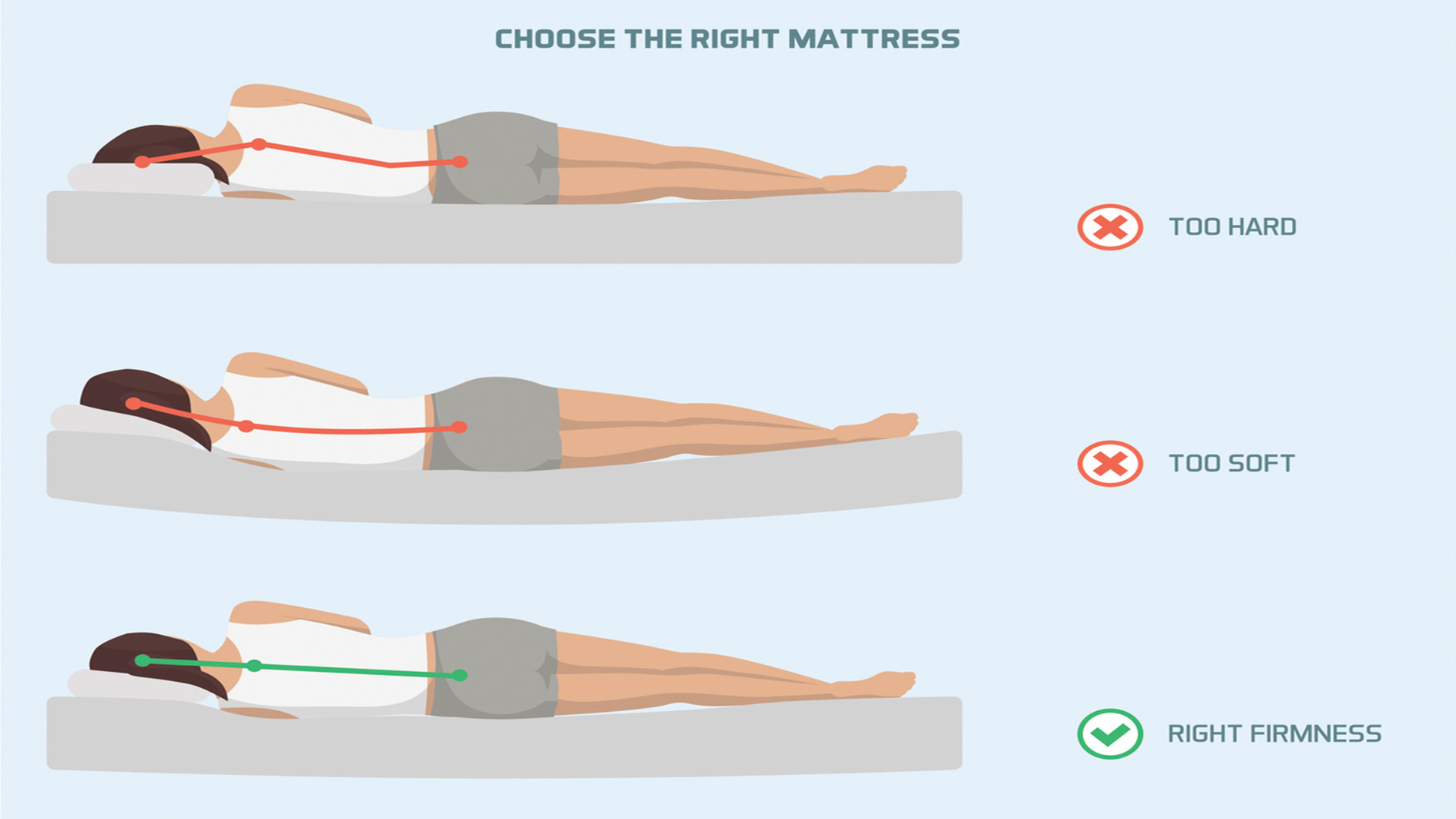
2. Factor your weight and build
Your body weight is another thing to consider when choosing the right firmness for your mattress. A hard mattress should offer the best level of support for sleepers over 230lbs while those who weigh under 130lbs will want something softer they can sink into. Sleepers who fall in between those weight ranges should look for a medium or medium-firm mattress.
Meanwhile, your body composition will also play a role here. For instance, if you have wide hips a hard mattress could aggravate your hip pointers, while a medium-firm mattress will promote proper alignment without discomfort. If you have broader shoulders, a soft or medium-firm mattress will be best for sufficient pressure relief.
3. Never buy a mattress without a trial
Fortunately, this is rare as the best mattress companies offer an at-home trial period so you can break in your new bed. It usually takes at least a month for your body to adjust to a new sleep surface. Also, many boxed mattresses need time to soften or firm up after they've been unpacked.
Some brands are more generous than others here. Saatva, Nectar, and Awara are among the few that offer a one-year trial. The average is around 100 nights, which is roughly three months. In most cases, returns are free. Some brands do charge a fee to send your mattress back so read the fine print carefully.
- Read more: How firm should a mattress be?
Are memory foam or hybrid mattresses better for aches and pains?
Both memory foam and hybrid mattresses can help relieve pain and joint pressure, but it'll come down to what you need to feel comfortable.
Memory foam mattresses hug your body and cushion your joints, so they're exceptional for joint pain. Plus, all-foam beds excel at dampening movement so if you share a bed with a restless partner, you're less likely to be disturbed by their movements. They tend to be cheaper than hybrids but may not last as long. A lack of springs also means the edge support won't be as strong.
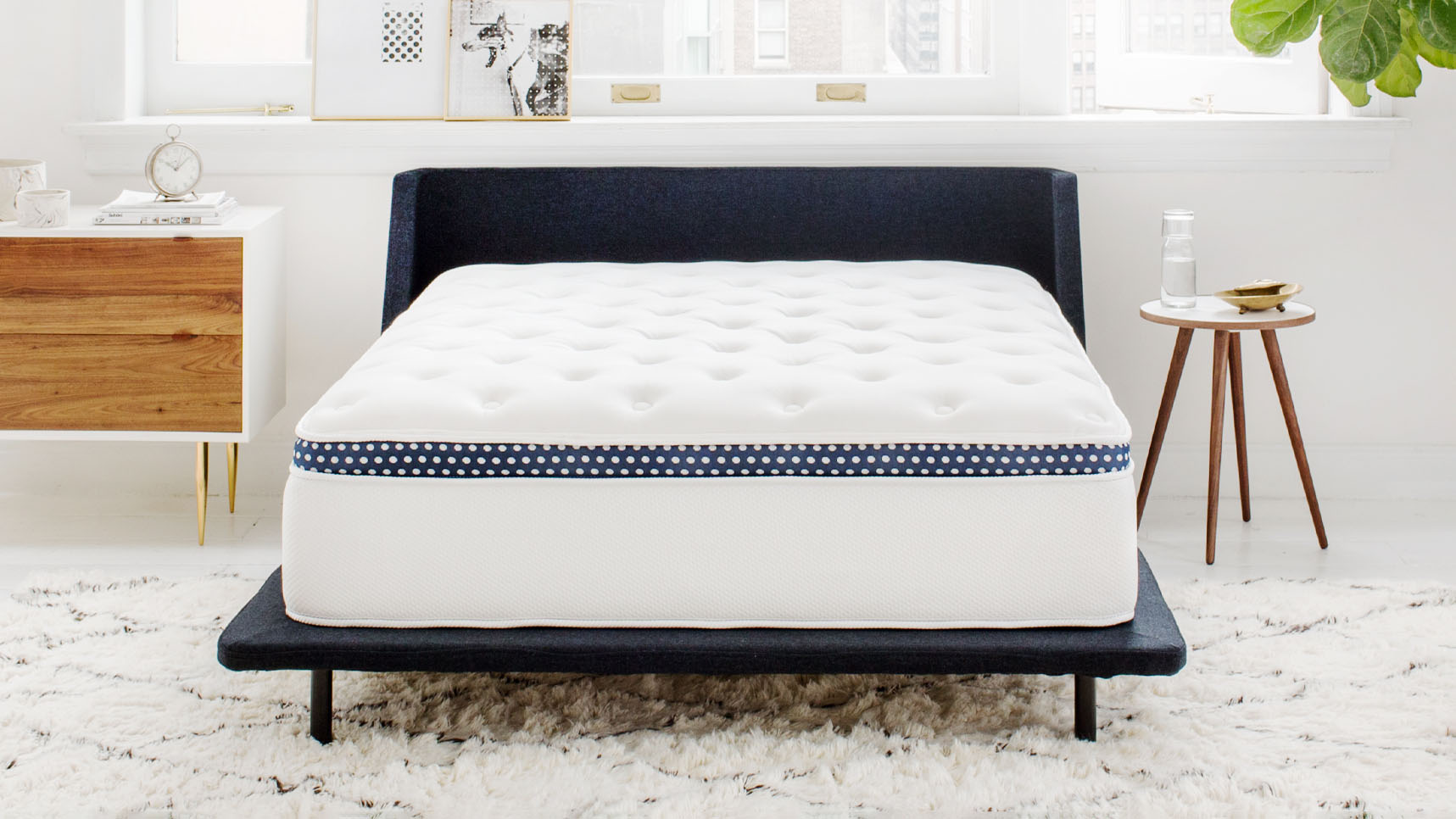
Hybrid mattresses combine foam and springs so you'll feel cradled by your bed rather than hugged. This will suit sleepers with back pain who want a balance of relief and support. Hybrids also tend to sleep cooler thanks to their coils, which allow air to flow freely so heat doesn't get trapped. On the flip side, hybrid mattresses have plenty of bounce – which is good if you like to switch positions at night but if you share a bed you'll probably wake each other up.
How about latex mattresses for pain relief? Like memory foam, latex will contour your body but you won't experience a dramatic sink-in feel, nor will it trap heat like synthetic foam. Latex beds also tend to be firmer and more buoyant, especially when paired with springs. They are expensive, but in return, you'll have a bed that could potentially last you decades. You'll often find latex in organic mattresses.
Today's best deals on top soft and firm mattresses for aches and pains
Soft mattresses
Kiwi Sleep Mattress: from $1,624 $1,088 at Kiwi Sleep
SleepOvation is now known as Kiwi Sleep but its flagship mattress and permanent sale offer have otherwise remained the same. It has an unorthodox design – freely suspended 3" foam pockets plus a layer of 8" carbon steel cushion pocket springs – that gives it an exquisite plushness that'll appeal to a certain kind of sleeper. After 33% off, a queen Kiwi Sleep Mattress drops to $1,775 (was $2,649). It comes with a 10-year warranty and a 100-night trial.
Helix Sunset mattress: from $936 $702 plus 2 free pillows at Helix Sleep
Helix makes one of our favorite side-sleeper mattresses (the Helix Midnight) but if you're keen for something even softer, there's the Helix Sunset, which rates a 2-3 out of 10 on the firmness scale. It boasts super soft top layers with an optional cooling pillow top for top-notch pressure relief and temperature regulation. After a 25% discount, you can bring home a queen-sized Sunset mattress for $999 (was $1,332). You'll get 100 nights to try it out along with a 10-year warranty and two free pillows.
Firm mattresses
The WinkBed: from $1,149 $849 at WinkBeds
The WinkBed comes in four comfort levels, with its Firmer option rating a 7.5 out of 10 on the firmness scale. Here, you'll find a dual-layer Euro pillow top with gel-infused foam, a layer of pocket springs with targeted back support, and reinforced edges. There's also the WinkBeds Plus, which rates an 8 on the firmness scale and features a mix of high-density foam, latex, and support coils. A permanent $300 discount knocks a queen WinkBed to $1,499. (Note that the WinkBed Plus costs more.) You'll get 120 nights to try it out, along with a lifetime warranty. Read more in our WinkBed mattress review.
Plank Firm mattress: from $749 $561 at Brooklyn Bedding
The Plank stands out among other hard mattresses for multiple reasons. First, it's an all-foam mattress – instead of springs there's a 6" high-density foam core for support. Next, it's flippable, with one side offering slightly more contouring than the other (but both sides are decidedly firm, as we discovered in our Plank Firm mattress review). Finally, there's the cost. A queen Plank Firm mattress is just $999 after 25% off, which is a solid mid-range price. You'll also find less traditional sizes on offer for campers or unusual spaces. It's endorsed by the American Chiropractic Association and comes with a 10-year warranty plus a 100-night trial.

Based in Philadelphia, writer and editor Alison Barretta has been sharing buying advice and retail news for over 15 years. Since 2020 she's been helping Tom's Guide expand its robust library of sleep content by researching the latest trends, speaking with renowned experts, and going behind the scenes at Saatva, Casper, Sleep Number, Tempur-Pedic, and 3Z Brands. Alison has reviewed everything from budget mattresses to immersive luxury smart beds that automatically adjust to your every move. When she isn't reviewing mattresses or searching for great deals to save you money, Alison can be found practicing yoga and martial arts, experimenting with recipes, getting too invested in the Philadelphia Flyers, and snoozing with her cat / assistant mattress tester Alex.
 Club Benefits
Club Benefits










